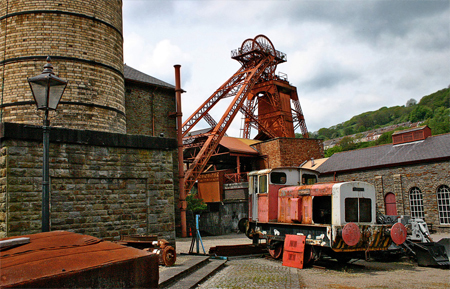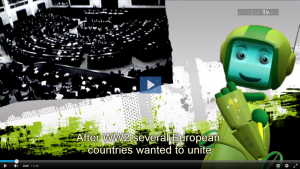The European Coal and Steel Community (1951)
The Treaty establishing the European Coal and Steel Community (ECSC) was signed in Paris on 18 April 1951. It was preceded by one of the most (if not the most) influential speeches in European Union history from French Foreign Minister Robert Schuman. In many ways, the ECSC can be seen as a practical follow up to the ‘Schuman Declaration’ and the treaty itself marked the birth of what would become the European Union as we know it today.
Click here to read a transcript of the Schuman Declaration.
- What does Schuman propose doing?
- From your knowledge of European integration theory, do you see Schuman’s prescriptions as functionalist of federalist (or a bit of both)?
If you would like to see some video footage of some of the so-called ‘founding fathers’ of the EU click here.
Now read this passage giving information on the ECSC
- Notice the signatory countries of the ECSC treaty
- Under the ‘Creation’ section, why does it say that the treaty was necessary?
- What were the practical objectives of the coal and steel community?
- Why should placing coal and steel under a common authority reduce the prospect of conflict?
- What were the institutional features of the ECSC?
The European Coal and Steel Community . . . key facts

The ECSC was, put simply, the starting point of the contemporary European Union. Envisaged to avoid the prospect of future war between France and Germany, the treaty establishing the ECSC proposed combining coal and steel production across the two states because coal and steel were, at the time, the drivers of Western economies and in particular the principal materials needed for the conduct of war.
By integrating in these areas, war was thought to be highly unlikely, both because of the damage it would do the French and German economies but also because with the production of these two materials dispersed between the two (and the other signatory states), conducting a war without the consent of the partner states would have been almost impossible.
The ECSC today
The ECSC treaty expired in 2002 and most of its functions were adopted into other EU treaties. Nonetheless, it remains, historically speaking, one of the most important developments in European Union history.
Calendar
| M | T | W | T | F | S | S |
|---|---|---|---|---|---|---|
| 1 | ||||||
| 2 | 3 | 4 | 5 | 6 | 7 | 8 |
| 9 | 10 | 11 | 12 | 13 | 14 | 15 |
| 16 | 17 | 18 | 19 | 20 | 21 | 22 |
| 23 | 24 | 25 | 26 | 27 | 28 | |

Leave a Reply